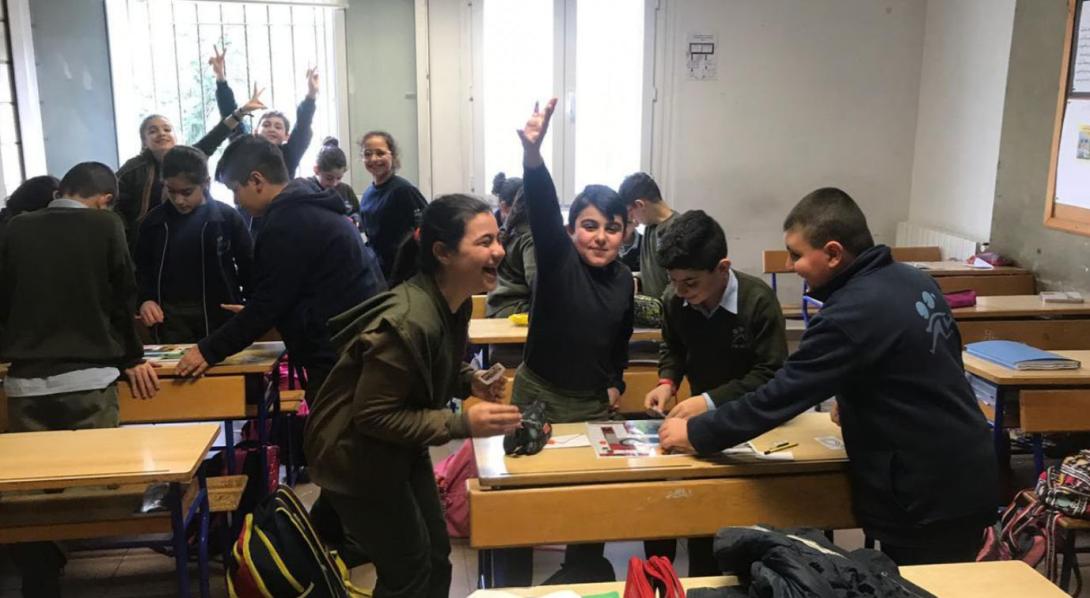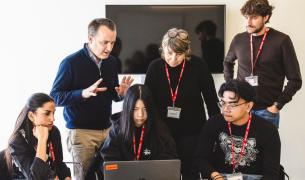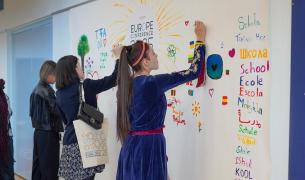In the Loop: Learning how to Support Children Impacted by Emergencies

In emergency situations, such as conflicts and natural disasters, education is often the first service interrupted and the last restored. In fact, UNICEF estimates that there are currently 75 million children, living in 35 countries, who have had their education disrupted as a result of crises and enduring conflict. However, education plays an essential role in restoring peace and stability as it provides children impacted by emergencies with the support, tools and hope they need to build a brighter future for themselves and their communities. Parents and children in crisis-affected communities consistently name education as one of their top priorities.
Given the importance of education in emergency situations, participants, staff and alumni of Teach For All network partners in 20 countries came together for a classroom learning loop that focused on the question: What does excellent teaching of students impacted by emergencies look, sound, and feel like?
The learning loop process offers participants the opportunity to study classrooms in diverse cultures and contexts and draw lessons that can be applied locally. In this case, participants virtually visited the classrooms of Palestinian teacher and Global Teacher Prize Winner Hanan Al Hroub and German teacher and Global Teacher Prize Finalist Marie-Christine Ghanbari, and heard from a student leader from Aleppo named Ahmed. They also learned about community organizations and non-profits working in the area of education in emergency situations and studied data that brought to life the realities facing refugees and other groups impacted by emergencies. In addition, they read poetry and other writing by individuals who had lived through conflict and emergencies in order to build empathy and understanding.
Aspects of their own work drew learning loop participants to the interactive experience. Teach For Lebanon fellow Josaine Atallah wanted to become better prepared to support her students who were refugees, while Teach For Japan Program Leader Ikuko Yamada was aware that many students in Japan continue to be impacted by the devastating earthquake of 2011, and wanted to learn more about how teachers can help students deal with the lasting effects of natural disasters.
As part of the course, participants committed to putting what they learned into action in their work in a tangible way. One example is the collaboration that developed as the learning loop progressed between Armine Gevorgyan, a school leader and Teach For Armenia alumna, and Juan Pablo Ayala, an Enseña por Colombia teacher. Juan and Armine noticed throughout the course that they were passionate about the same topic—self-care for teachers who are working in contexts impacted by emergency—and they worked together to create self-care guidance and principles for teachers working in crisis-affected areas. For many participants, the learning and collaboration has continued beyond the learning loop, via a community Facebook group where they share knowledge and resources relevant to educating children in emergencies.
“[The experience] made me feel strongly connected with other teachers around the world who are working with students who face huge obstacles and instability in their education and in life generally,” reflected Teach For Lebanon fellow Samia Habli. “Seeing positive examples of teachers succeeding at creating supportive spaces of learning was encouraging and gave me the motivation to keep on going despite how difficult it is.”
Find out more about Teach For All’s Global Learning Lab and future learning loops.


